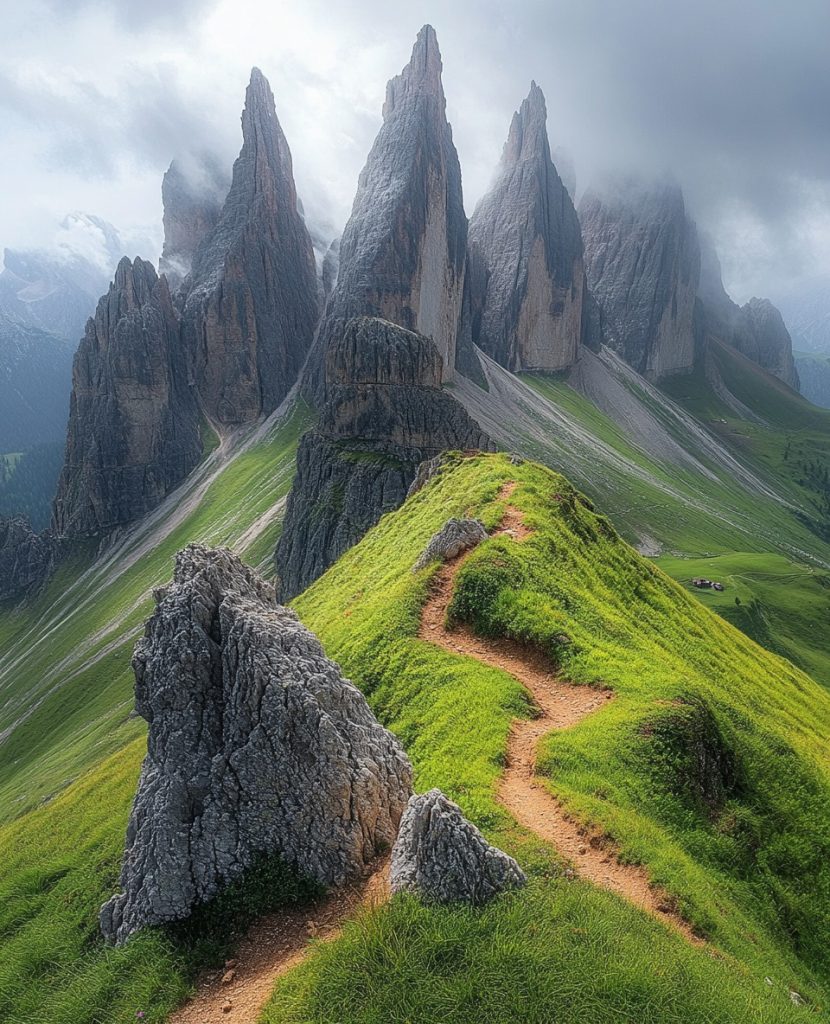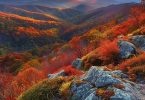
Dolomite Mountains
Facts about The Dolomite Mountains:
- UNESCO World Heritage Site: The Dolomites were designated as a UNESCO World Heritage site in 2009 due to their unique geological and aesthetic value.
- Pale Mountains: The Dolomites are known as the “Pale Mountains” because of their unique limestone composition, which gives them a distinctive color that changes with the sunlight.
- Ancient Sea Bed: These mountains were formed over 200 million years ago and were once part of an ancient tropical sea. Fossils of marine creatures can still be found in the rocks.
- World-Class Skiing: The Dolomites offer some of the best skiing in the world, with well-known ski resorts like Cortina d’Ampezzo, which has hosted the Winter Olympics.
- Via Ferrata Routes: The Dolomites are famous for their Via Ferrata (Iron Path) routes, originally built during World War I, allowing climbers to access spectacular routes safely.
- Rosengarten Massif: This famous massif is known for its unique pink glow at sunset, a phenomenon known as “Enrosadira,” which is deeply rooted in local legends.
- Alpine Flora and Fauna: The Dolomites host diverse wildlife and vegetation, including Alpine marmots, chamois, and vibrant wildflowers that bloom throughout the valleys in spring.
- Stunning Lakes: The Dolomites are dotted with crystal-clear alpine lakes, such as Lago di Braies and Lago di Carezza, offering scenic spots for reflection and photography.
- Charming Villages: Charming alpine villages like Ortisei and Cortina offer a mix of Italian and Tyrolean culture, making the Dolomites rich in heritage and tradition.
- Hiking Paradise: With hundreds of miles of trails, including the famous Alta Via routes, the Dolomites are a hiker’s dream, with breathtaking views around every corner.







Leave a Comment